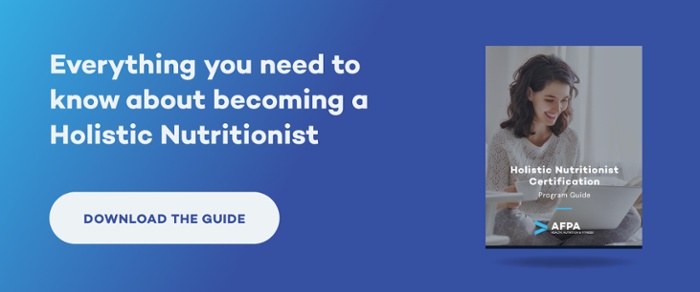Specializing in nutrition consulting as a career can be hugely rewarding, and many professionals find that they can mix financial success with personal satisfaction. Helping people refine or overhaul their eating habits has a significant impact that goes beyond simple meal plans—as a nutrition counselor, you have the ability to change lives.
Making sure that you can do that for the long term is a big part of running your own business. Here are 10 tips on how to build a successful nutrition consulting business that can help you create the kind of sustainable career that benefits both you and clients for years—even decades—to come.
1. Write a Business Plan
Even solo entrepreneurs and consultants should have a working business plan, because it helps to clarify goals and establish your purpose. The American Nutrition Association has a sample business plan that can give you a good starting point for developing your own.
2. Put Systems in Place
Whether you have yet to book your first client, or your schedule is packed with appointments, having an organized system is crucial. Think about what you need in place from start to finish: How will clients contact you? What are your scheduling tools? Do you have a standardized assessment? How will you follow up? These are questions that can help you streamline your processes.
3. Create a Professional Online Presence
Many potential clients are on Facebook, Instagram, Pinterest, and Twitter. Although these platforms take time to master, it’s worth the effort. Establish yourself as an expert, and be sure to adopt a professional image at all times—save politics and dog pics for your personal accounts.
4. Share Your Knowledge
Whether it’s through blogging or leading workshops, sharing your knowledge with a wider audience helps to establish your credibility. The more you do that, the more successful your business will become.
5. Become a Media Expert
Get wider exposure by contacting local and national journalists—particularly those writing about health and wellness—and offer yourself as a nutrition expert. Reporters are always looking for fresh sources, and this is one more way to establish credibility in the field.
6. Schedule Your Downtime
As you’re building your business, it’s easy to work longer hours and sacrifice your weekends. But over time, that can lead to burnout. Put preventative strategies in place by scheduling non-work time that’s filled with healthy activities like going to the gym or having family game night.
Become a Certified Holistic Nutritionist Online in 6 Months or Less
7. Create a Website
There’s no need to have an elaborate, expensive website, but you should have some destination online where you can direct clients. The site could have your blog, contact information, and even an online scheduling tool. This makes it easy for potential clients to find you.
8. Network, Network, Network
While it’s helpful to connect with other nutrition professionals, spend some time networking—in person, at conferences, and on LinkedIn—with those who could refer clients your way. For example, you may cultivate a professional relationship with personal trainers at the local gym, who could recommend you to their own clients.
9. Go Beyond Individual Clients
To maximize success, think of all the ways your nutrition insights could be used. You might partner with area businesses to do nutrition workshops for their employees as part of corporate wellness initiatives. You could hold community education classes, or consult with school systems. The best part of initiatives like these is that you’re likely to get more individual clients as a result.
10. Keep Expanding Your Education
Getting certified in nutrition counseling is a great step in your career, but to be successful, it’s important to consider certification as a starting point, not an endpoint. You might consider specialization based on your areas of interest, such as weight management, sports nutrition, or youth nutrition. This will greatly expand your client base and keep you engaged with the subject matter at the same time.
To learn more about AFPA’s nutrition certifications—including specialized programs—visit our website.




